Daniel Weimer
Quantum-Enhanced Selection Operators for Evolutionary Algorithms
Jun 21, 2022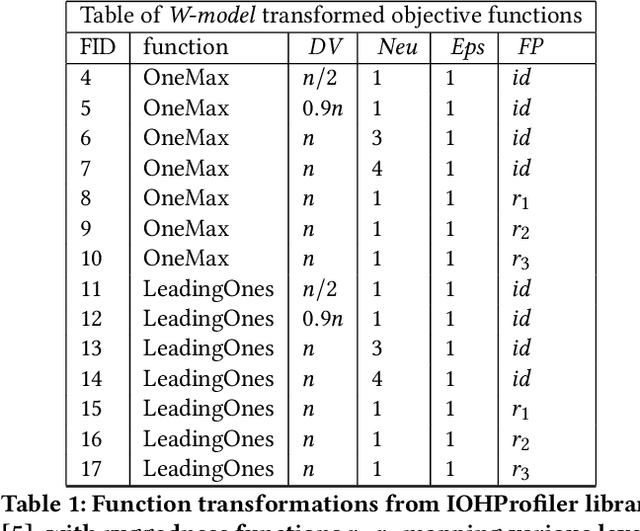
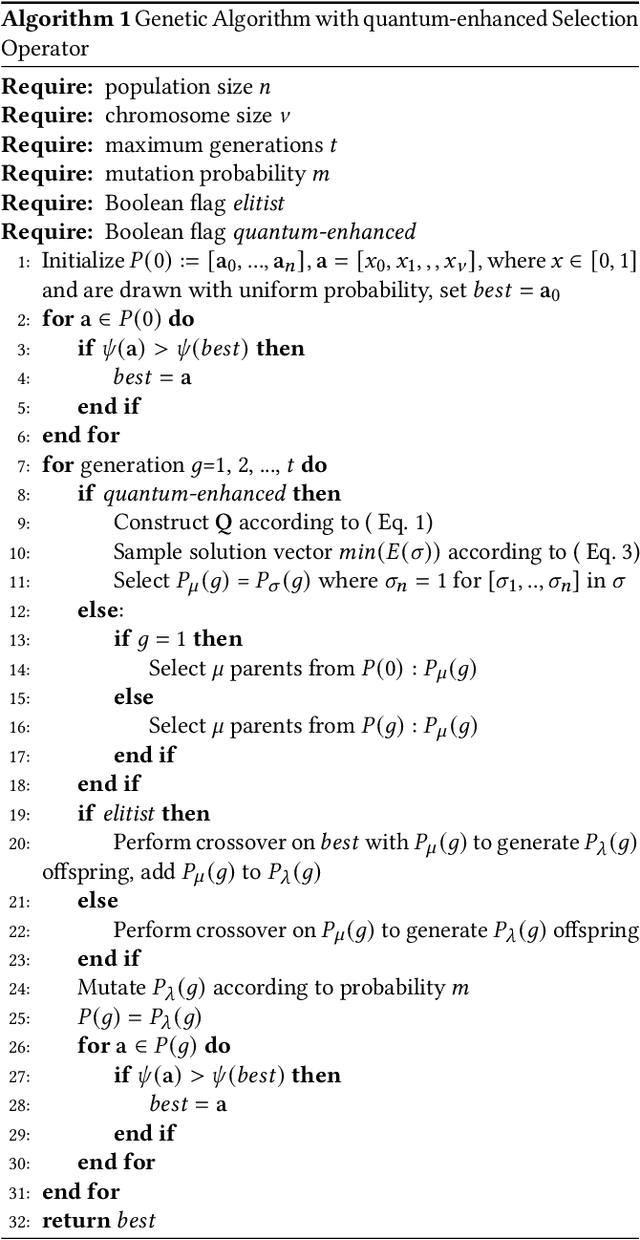
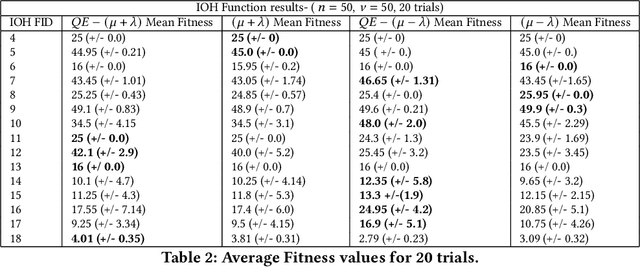

Abstract:Genetic algorithms have unique properties which are useful when applied to black box optimization. Using selection, crossover, and mutation operators, candidate solutions may be obtained without the need to calculate a gradient. In this work, we study results obtained from using quantum-enhanced operators within the selection mechanism of a genetic algorithm. Our approach frames the selection process as a minimization of a binary quadratic model with which we encode fitness and distance between members of a population, and we leverage a quantum annealing system to sample low energy solutions for the selection mechanism. We benchmark these quantum-enhanced algorithms against classical algorithms over various black-box objective functions, including the OneMax function, and functions from the IOHProfiler library for black-box optimization. We observe a performance gain in average number of generations to convergence for the quantum-enhanced elitist selection operator in comparison to classical on the OneMax function. We also find that the quantum-enhanced selection operator with non-elitist selection outperform benchmarks on functions with fitness perturbation from the IOHProfiler library. Additionally, we find that in the case of elitist selection, the quantum-enhanced operators outperform classical benchmarks on functions with varying degrees of dummy variables and neutrality.
Quantum-Assisted Feature Selection for Vehicle Price Prediction Modeling
Apr 08, 2021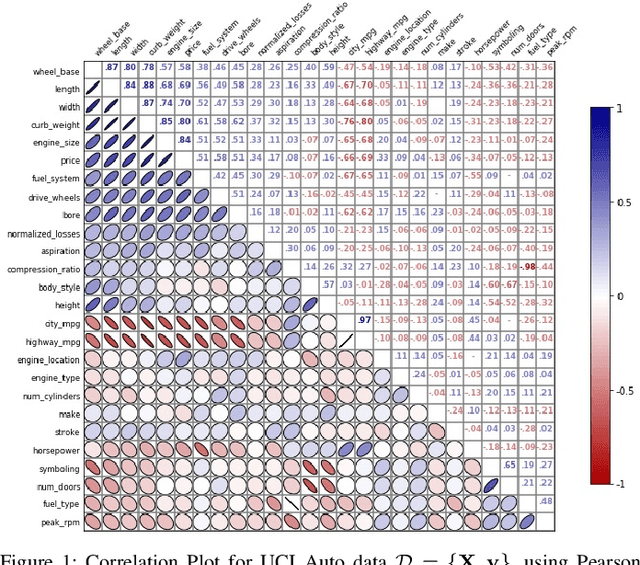
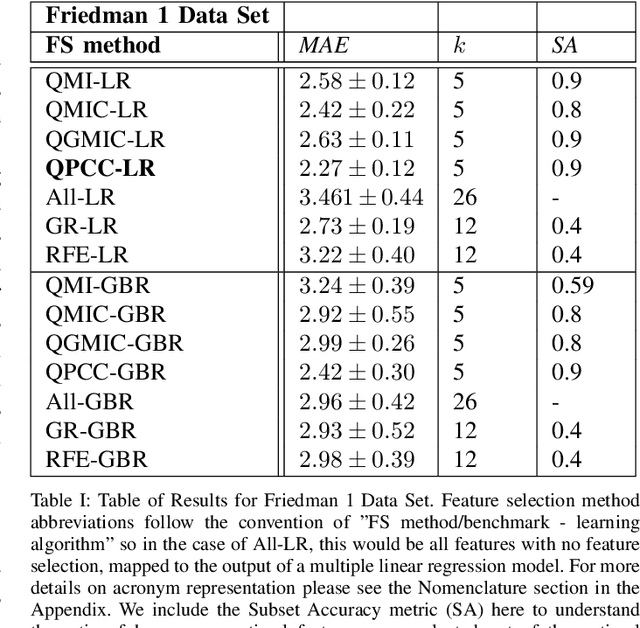
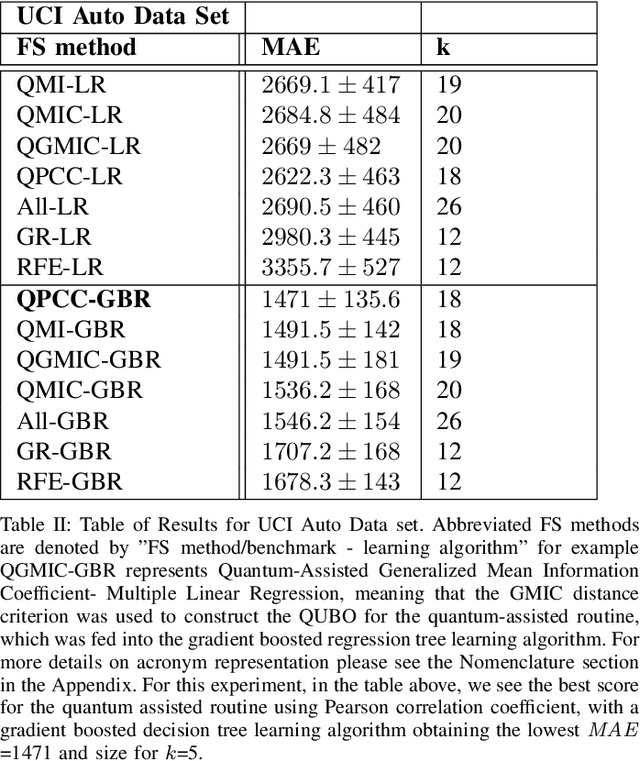
Abstract:Within machine learning model evaluation regimes, feature selection is a technique to reduce model complexity and improve model performance in regards to generalization, model fit, and accuracy of prediction. However, the search over the space of features to find the subset of $k$ optimal features is a known NP-Hard problem. In this work, we study metrics for encoding the combinatorial search as a binary quadratic model, such as Generalized Mean Information Coefficient and Pearson Correlation Coefficient in application to the underlying regression problem of price prediction. We investigate trade-offs in the form of run-times and model performance, of leveraging quantum-assisted vs. classical subroutines for the combinatorial search, using minimum redundancy maximal relevancy as the heuristic for our approach. We achieve accuracy scores of 0.9 (in the range of [0,1]) for finding optimal subsets on synthetic data using a new metric that we define. We test and cross-validate predictive models on a real-world problem of price prediction, and show a performance improvement of mean absolute error scores for our quantum-assisted method $(1471.02 \pm{135.6})$, vs. similar methodologies such as recursive feature elimination $(1678.3 \pm{143.7})$. Our findings show that by leveraging quantum-assisted routines we find solutions that increase the quality of predictive model output while reducing the input dimensionality to the learning algorithm on synthetic and real-world data.
 Add to Chrome
Add to Chrome Add to Firefox
Add to Firefox Add to Edge
Add to Edge